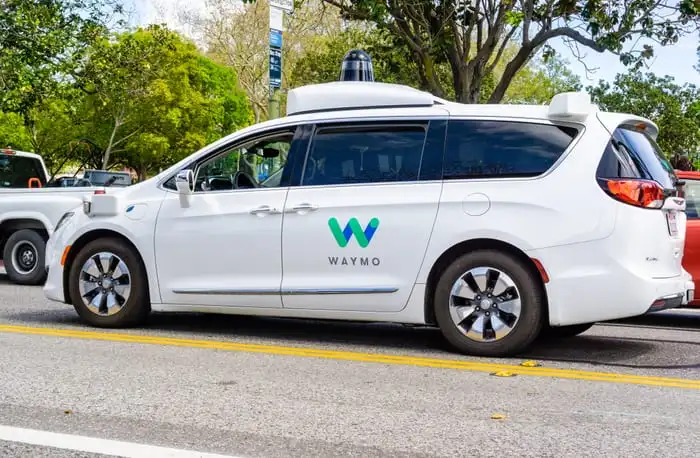San Mateo County is against the expansion of Waymo’s driverless-car service

San Mateo County is resisting a proposal to introduce driverless taxis to the streets and highways of the Peninsula.
In a letter to regulators, the county opposed Waymo’s request to expand its autonomous taxi service beyond San Francisco. Waymo, along with its competitor Cruise, has faced safety issues in San Francisco, including instances where driverless cars caused traffic congestion and obstructed emergency responders.
“Waymo failed to engage in detailed discussions with county staff regarding the specifics of its proposal to expand its operations, essentially unchecked, into San Mateo County,” the county’s letter to the California Public Utilities Commission (CPUC) stated.
The Alphabet Inc subsidiary, which is Google’s parent company, aims to have its driverless vehicles pick up and drop off paying passengers from northern San Mateo County to Sunnyvale in Santa Clara County. Robotaxis were initially permitted to operate in San Francisco in August.
The letter of objection was signed by county attorney John Nibbelin and dated Feb. 8, the deadline for submitting objections to Waymo’s expansion plans.
The Department of Motor Vehicles approved Waymo’s operations on the Peninsula in January. The company is now awaiting a response from the CPUC, expected within the next few weeks, before its vehicles can operate beyond San Francisco County limits. Currently, local governments have no authority to decide where Waymo operates.
“If Waymo had engaged meaningfully with County Staff on this matter, we would have emphasized that this expansion is of significant public interest and requires much closer scrutiny and stakeholder outreach than the advice letter process can provide,” the letter stated.
Waymo did not immediately respond to a request for comment.
The county’s Board of Supervisors also unanimously approved a resolution this week in support of Senate Bill 915, which would grant local governments the authority to permit or prohibit the use of driverless cars on their roads. The bill, authored by state Sen. Dave Cortese, a San Jose Democrat, would also allow cities and counties to establish local regulations, such as limiting the number of cars operating in a certain area or setting maximum fares.
San Mateo County Supervisor David Canepa, who introduced the resolution, expressed strong opposition to Waymo’s expansion plans.
“It is time to pull the plug on Waymo’s unlimited access to our highways and roads in the heart of Silicon Valley,” he said. “These decisions are currently being made by two state agencies that have not engaged meaningfully with county or city officials who understand local roads the best. We do not want to see the calamities that autonomous vehicles (AVs) have caused in San Francisco, including just last week when a Waymo vehicle struck a bicyclist. We want to avoid these dangerous scenarios in Silicon Valley, and we need local control to do so.”
In October, the DMV informed Cruise that it could no longer operate its taxis in the city, citing the vehicles as an “unreasonable risk to the public.”
Last weekend, during Lunar New Year celebrations in San Francisco’s Chinatown, revelers destroyed and set fire to a Waymo vehicle on Jackson Street near Grant Avenue.
Despite San Mateo County’s stance, some local government officials are more optimistic about Waymo’s planned expansion.
In Mountain View, at the southern end of the Peninsula in Santa Clara County and home to Waymo’s headquarters, Mayor Pat Showalter stated that the local government, which has had a strong relationship with Waymo and its parent company, would support whatever decision the CPUC makes. The five commissioners are appointed by the governor and approved by the state Senate.
“We are eager to collaborate with them based on the outcome,” Showalter stated. “Our police department is ready to cooperate with them regarding their plans for interactions with law enforcement.”
The mayor of Mountain View expressed confidence that the local government and police would effectively address safety concerns and regulations for autonomous vehicles if they are permitted to operate on the roads.
Although she is aware of increasing opposition to driverless vehicles among neighboring communities to the north, Showalter indicated that the city prefers to adopt a “wait and see” approach.
“I believe that Waymo, as a company, will resolve these issues,” Showalter remarked. “It’s premature to make decisions based on events that have not yet occurred.”

